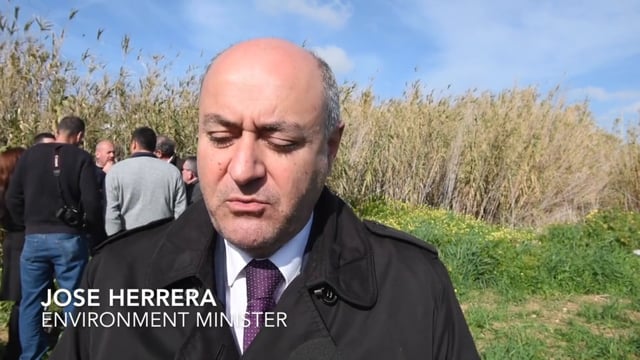[WATCH] Malta will have to respect the European court’s decision on bird trapping, Jose Herrera says
Environment Minister Jose Herrera says the negative opinion expressed by the European court's advocate general on trapping in Malta is not the final say on the matter and the government will wait for the European Court of Justice's decision




The government will have to accept the decision which is yet to be reached by the European Court of Justice (ECJ) on whether the trapping season in Malta is in breach of the Birds' Directive, Environment Minister Jose Herrera told MaltaToday.
In an opinion released last year, the advocate general at the ECJ stated that the opening of a trapping season in Malta went against EU law.
“The report is what it is,” Herrera said, “but it is not final, and the sentence still needs to be handed down”. The decision by the ECJ is imminent and could be expected anytime in the first quarter of this year.
“Naturally, once the ECJ makes this decision, Malta cannot simply ignore the court's sentence,” he said, adding the wording of the eventual ruling will have to be studied.
When asked whether he thinks the court could rule in favour of trapping in Malta, the minister said that there are strong legal arguments on both sides, and that exemptions could be made.
There is a growing feeling within the hunting community that the ECJ may decide against Malta, spelling the end of finch trapping. Bird conservationists were upbeat earlier this month that the ECJ will decide to stop trapping.
“We live in a small country, in which there are many different interests. The scope of the government is not to be against hunting, but to permit things to happen in a sustainable manner, avoiding exaggerations from both sides,” Herrera said.
He spoke at the end of a joint activity with hunting organisation Kaccaturi San Ubertu (KSU) during which the government launched a tree-planting scheme to help hunters embellish fields they own with indigenous trees.
The minister praised the efforts by hunters in promoting the environment. He said hunting would not exist if the natural environment is not protected.
The project will see the Parks Directorate planting trees in the fields of 14 participants who opted to join the scheme.
Herrera said he was satisfied with the progress so far in getting private individuals involved in these projects, but hoped that a larger number would participate next year.
“We are asking [private persons] to help us in these projects, because a large part of viable territory is privately owned,” Herrera said.
The project will see 471 trees planted, all of which are indigenous.
The areas in which the trees are planted will be subject to inspection by Parks officials in order to make sure that they are kept in good conditions.






.jpg)













.jpeg)


